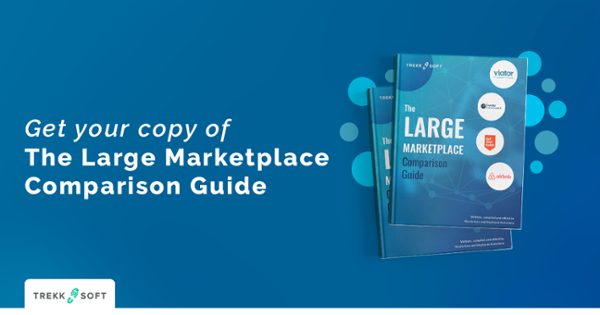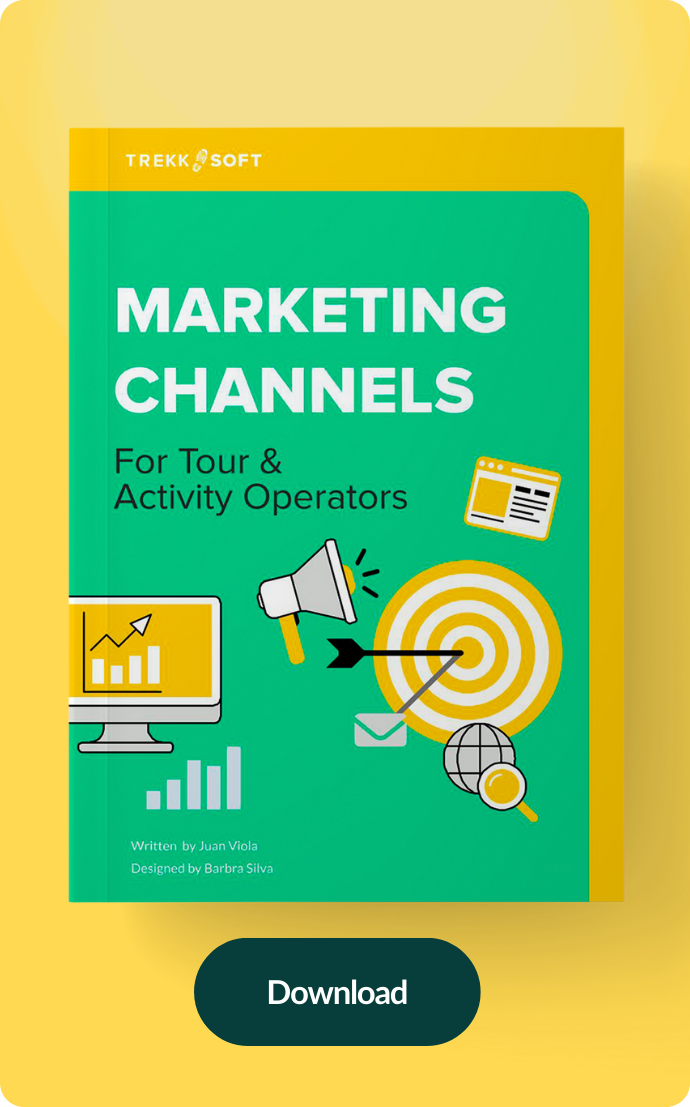Working with online marketplaces is a good idea for tour and activity companies who would like to expand their reach and establish a "professional" online presence.
Large marketplaces like Viator (now renamed to TripAdvisor Experiences) and Expedia have long established their presence in the travel industry and are doing a fantastic job at growing their virtual presence, and even successfully bridging the transition from online to offline, real-world customer experiences.
Since writing this article, we have released a guide where you can compare Viator, Expedia, GetYourGuide and Airbnb Experiences in one place.
A little background information on Viator and Expedia Local Expert
Viator, founded in 2006, is a TripAdvisor company based in San Francisco. The online marketplace is available in 11 local languages and has more than 3,500 partners worldwide to include travel providers like Hilton and Wyndham, airlines like Swiss and Etihad, loyalty programmes like American Express and Mastercard, technology partners like Tavisca and Open Jaw, and travel sites like Lonely Planet and Priceline.
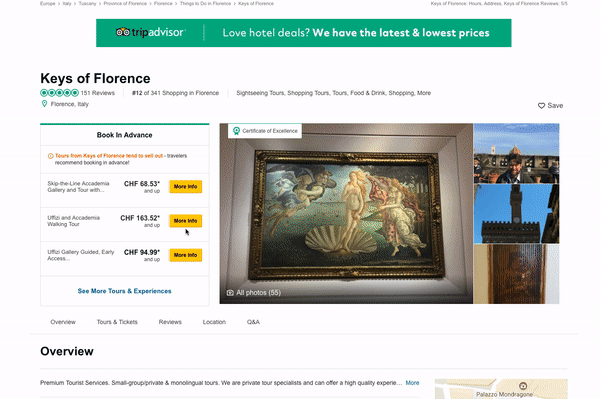
Viator's main selling point is that it connects your TripAdvisor profile to your Viator profile, allowing site users to easily browse and book activities, without having to leave the site.
In October 2017, Viator announced that they were rolling out a new platform for travel agents to book from 104,000 trips from more than 2,400 destinations and earn an 8% commission for each booking. As of May 2018, 23,000 agents have registered to become Viator Travel Agents and Viator products reach over 150,000 global travel agents through our distribution partners.
Expedia Local Expert was launched back in 2014 and is part of Expedia Group that operates the well-known Expedia travel booking platform that offers hotels, cruises, flights, and now, "Things to do". According to their site, "Expedia Local Expert is a one-stop resource for local activities, tours, and transportation in more than 750 different vacation destinations." When you sell on Expedia Local Expert, your products will be distributed in 17 different language sites, across 57 different websites including Orbitz, AirAsia Go, Hotels.com and Ebookers.
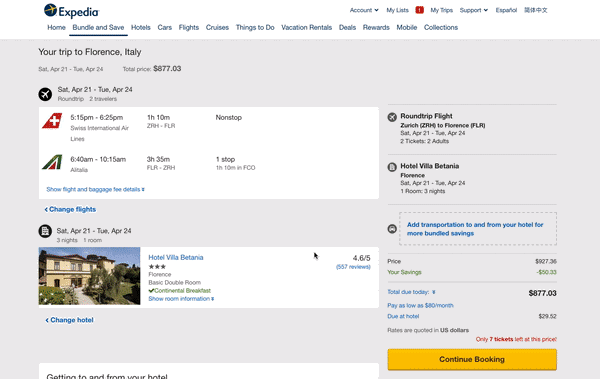
During the booking process for accommodation or flight tickets via Expedia, "Things to do" will be displayed towards the end of the booking process, allowing customers to seamlessly add tours and activities to their "Cart".
Apart from online booking capabilities, Expedia Local Expert also operates concierge desks in hotels around the world, offering in-person advice to customers who are already in-destination.
In February this year, Expedia also launched "Event Tickets" to further leverage on their online booking and payment capabilities and to truly provide a one-stop shop for travellers.
Similarities between two of the world's largest marketplaces
Tough competition against other suppliers on the platform
These marketplaces are large, huge in fact. While they are able to attract a lot of consumer traffic, it also means that they attract a lot of suppliers who want to sell on their sites. This can be difficult for companies who want to stand out from the crowd as competition to get on the "Recommended" list can be tough. On the other hand, large marketplaces are susceptible to more regional competition as well as more curated, niche marketplaces.
When it comes to tours and activities, however, Skift reports that Viator currently holds the highest number of tour and activity listings globally (55%), followed by GetYourGuide (20%) and Expedia Local Expert (12%). The relatively low number of listings on Expedia at the moment could be a window of opportunity for operators who want to establish their presence on the Expedia because there's a lot less competition at the moment.
Skift also reports thatEurope (37%), Asia (30%) and Africa & Middle East (12%) are the top three regions where Viator's inventory comes from. As for Expedia, a majority of inventory comes from Europe (34%), Asia (26%) and US & Canada (21%).

Established brands in the travel industry attract a lot of consumer attention
Both Viator and Expedia are also well-known brands in the travel industry and have developed their online marketing and booking capabilities to maximise conversions. Therefore both companies offer a lot of visibility and reach, promising to put you in front of thousands of eyeballs each month.
When working with online marketplaces, your marketing costs is replaced by your commission rates, which can work out to be more cost-effective depending on your marketing strategy and the deal you strike with your account manager. Think about it, the chances of you attracting the same volume of browsers as these marketplaces do is slim at best. It takes time, energy and expertise, something that Viator and Expedia have perfected over the years.
Furthermore, at the end of each tour, your customers will receive an automated email from the marketplace asking for a review. If you're interested in building your reputation on either Viator or Expedia, this could be a good thing for you too.
Speaking of commission rates, how much do they charge?
According to our Customer Success Managers and Product teams who work closely with both Viator and Expedia, there's a commission charge of 20% - 40% for both platforms. Both platforms work on a case by case basis and you'll need to speak to your Account Manager (Viator) or Destination Manager (Expedia) to negotiate a commission rate that work for both your businesses.
To make matters more complicated, Viator requires that all prices listed to be the lowest available price, meaning that you're not allowed to sell your trips for a lower price on your own website.
Do note that you only pay a commission when a booking is made. The only additional cost you might incur are your bank transfer fees, which you can easily add to your retail price of the tour.
Read: How much should you pay for distribution?
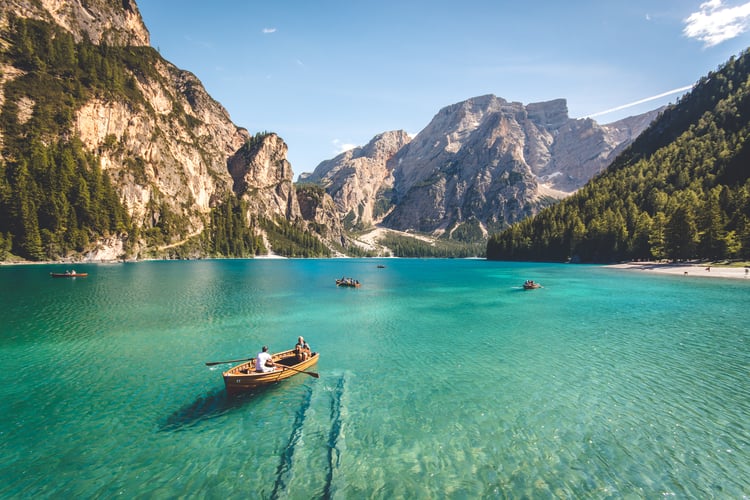
Web traffic for Viator and Expedia... and TripAdvisor too
Traffic stats for both marketplaces differ greatly. Viator's site brings in close to 8 million visitors a month, with 36.8% of traffic coming from the United States, 6.5% from the UK, 4% from Australia and 4% from Canada. The site ranks globally at 8500, and 4000 in the United States.
However, if you were to analyse Viator's performance without taking into account TripAdvisor's performance, that would be a mistake. With more than 20% of Viator's traffic coming from TripAdvisor the review site plays a large role in Viator's success.
TripAdvisor receives 155 million visits a month, with TripAdvisor.com attracting 57% of visits from the US and TripAdvisor.co.uk attracting 86% of traffic from the UK. TripAdvisor.com ranks 232 globally, 72 in the US, and 1st in the tourism category. While they have yet to figure out a way to channel a larger proportion of this traffic to Viator, recent discussions amongst tour and activity suppliers suggests that the company is removing supplier contact details from TripAdvisor listings and replacing them with "Book Now" buttons that lead to Viator.
Whether or not this change is permanent, no one knows as TripAdvisor has yet to make any formal statements about it.

Expedia, on the other hand, attracts almost 54 million visitors a month, with 81.4% of traffic coming from the United States, 0.91% from Canada, 0.70% from Israel, 0.62% from Mexico and only 0.59% from the UK. Globally, the website ranks at 905 as of today, and ranks 176 in the US. It also ranks number 4 in the tourism category. While Expedia ranks highly globally for travel, Local Expert, the tour and activities section of the website still lags behind.
Find updated web traffic stats on Viator here and Expedia here.
A few things to consider before signing up with these marketplaces
Types of trips you can list
With Viator, you can list trips that both run on regular schedules and those that are available on-demand. On Expedia, this option is unavailable.
Insurance policies
Both Viator and Expedia stress that all suppliers need to provide insurance coverage to customers and requires suppliers to provide a Public Liability Certificate of Insurance (or COI).
Learn more about this on Viator's FAQ page and on Expedia's FAQ page.
Cancellation policies
With Viator, customers who cancel at least 7 days in advance will receive 100% refund. If they cancel 3 and 6 days beforehand, a refund of 50% is expected.
As for Expedia, you are able to determine your own cancellation policy and refunds will be made accordingly.
UPDATE: Bookings made on May 8th onwards are eligible for a 24-hour cancellation policy. Viator's "Standard Cancellation Policy" will allow customers to cancel a booking up to 24 hours before the trip departs and receive a full refund. This policy applies to all products on the Standard Cancellation Policy, as well as any new products that are loaded under this policy. Products not on the standard policy, such as multi-day tours, will be unaffected.

Customer contact information
Whenever a booking is made directly on your own website, you are able to collect as much or as little information about your customers. It's up to you. However, when working with marketplaces, it is not as flexible.
For Viator, suppliers are given the following:
- Guest name
- Contact number
- Additional information such as pickup location and add-ons
For Expedia, suppliers are provided with the following details:
- Guest name
- Email address
- Booking number
API connections with Expedia and Viator can help with inventory management
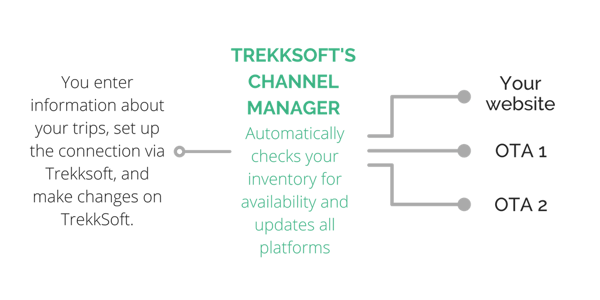 When working with multiple distribution channels, it's always a good idea to consider working with a booking system that offers real-time availabilities and API connections. This takes out the manual work required to update your inventory with the latest availabilities, pricing and schedules.
When working with multiple distribution channels, it's always a good idea to consider working with a booking system that offers real-time availabilities and API connections. This takes out the manual work required to update your inventory with the latest availabilities, pricing and schedules. Read: Channel Manager 101: Connect to online marketplaces to sell more tours
How to sign up with Viator and Expedia Local Expert
It's free to sign up for both marketplaces.
To sign up for Viator, visit their Supplier Sign-up page. After clicking on the sign-up button, an application form will appear after which you’ll be presented with an agreement. When a supplier accepts the agreement, you’ll receive a login ID and a password for Viator's extranet. This is the home account for the suppliers. They can add, edit products, see bookings, manage customers and do a lot more through this platform.
To sign up with Expedia, head over to their FAQ and sign-up page. Here suppliers register by filling out a form asking for their contact details. Your profile will be reviewed and if approved, you will be contacted by an Expedia team member to begin your onboarding process.
Compare Viator (TripAdvisor Experiences), Expedia Local Expert, GetYourGuide and Airbnb Experiences all in one place
Author's note: This post has been updated based on information received from both teams at Expedia and TripAdvisor Experiences.

